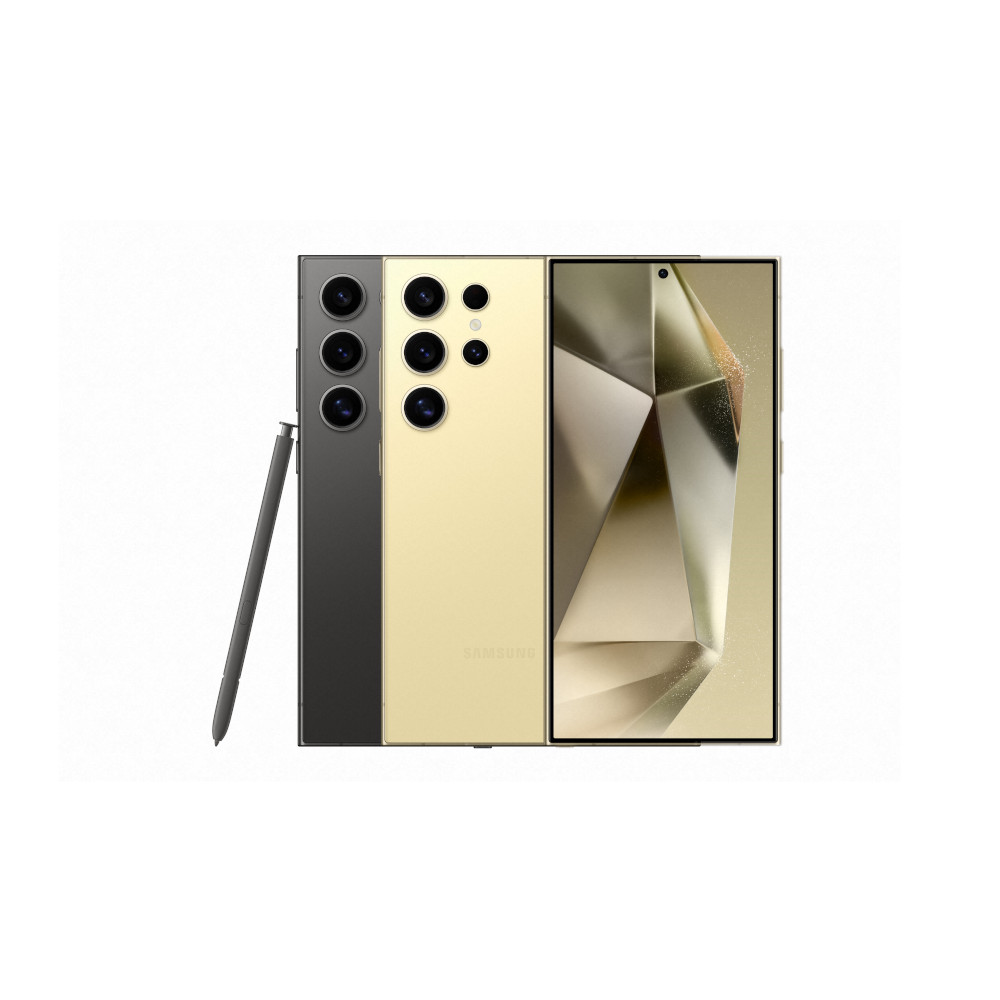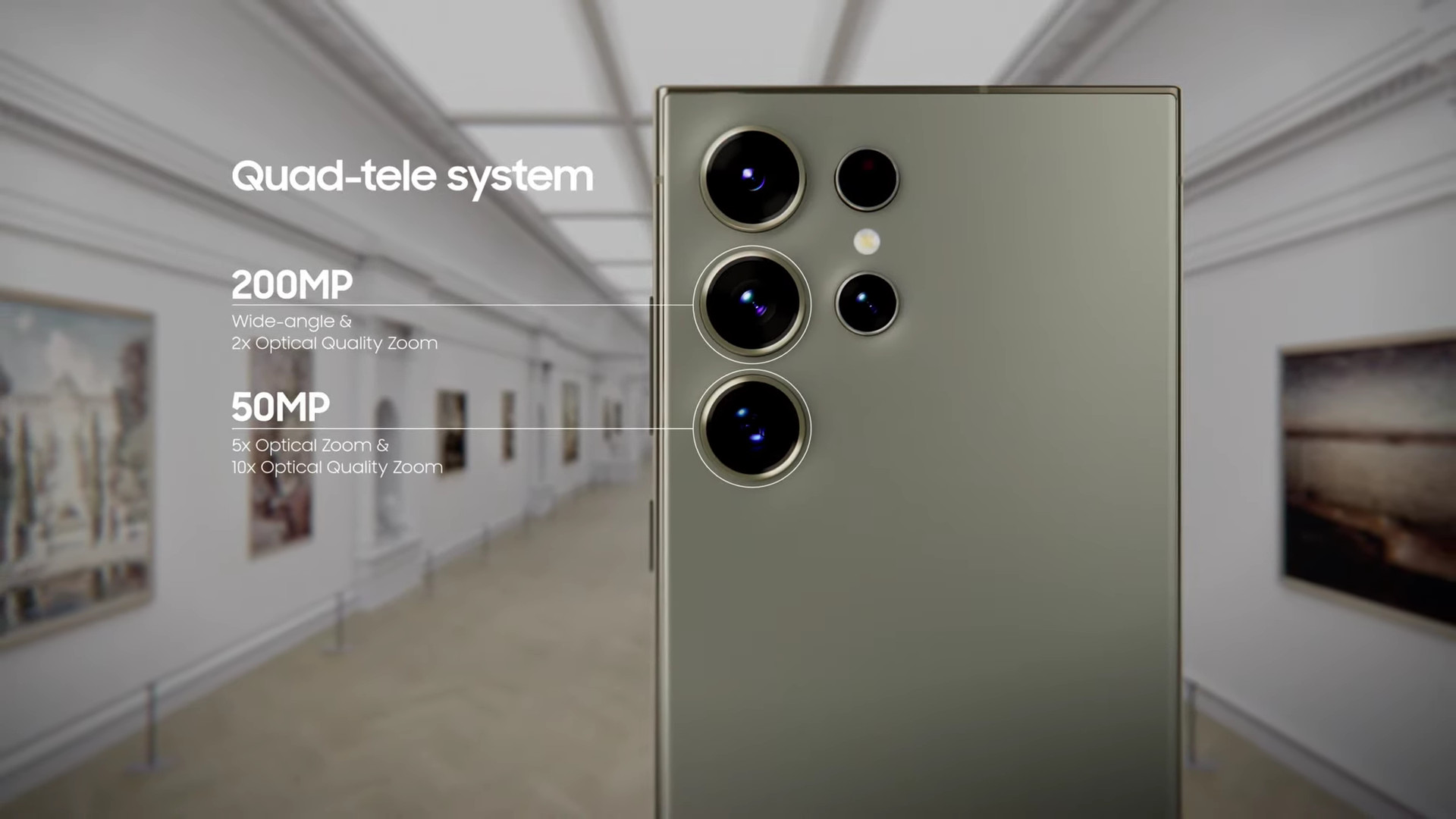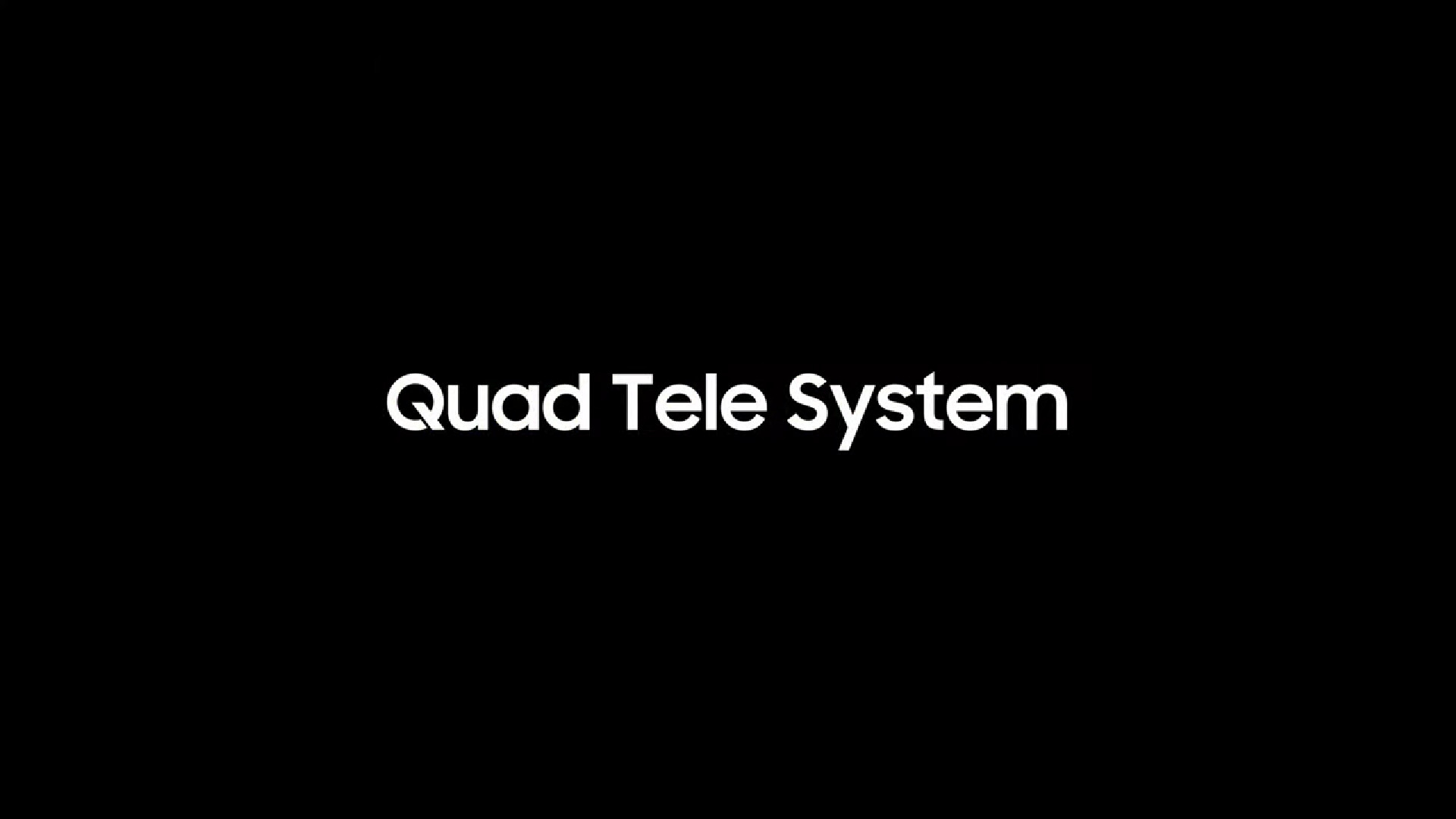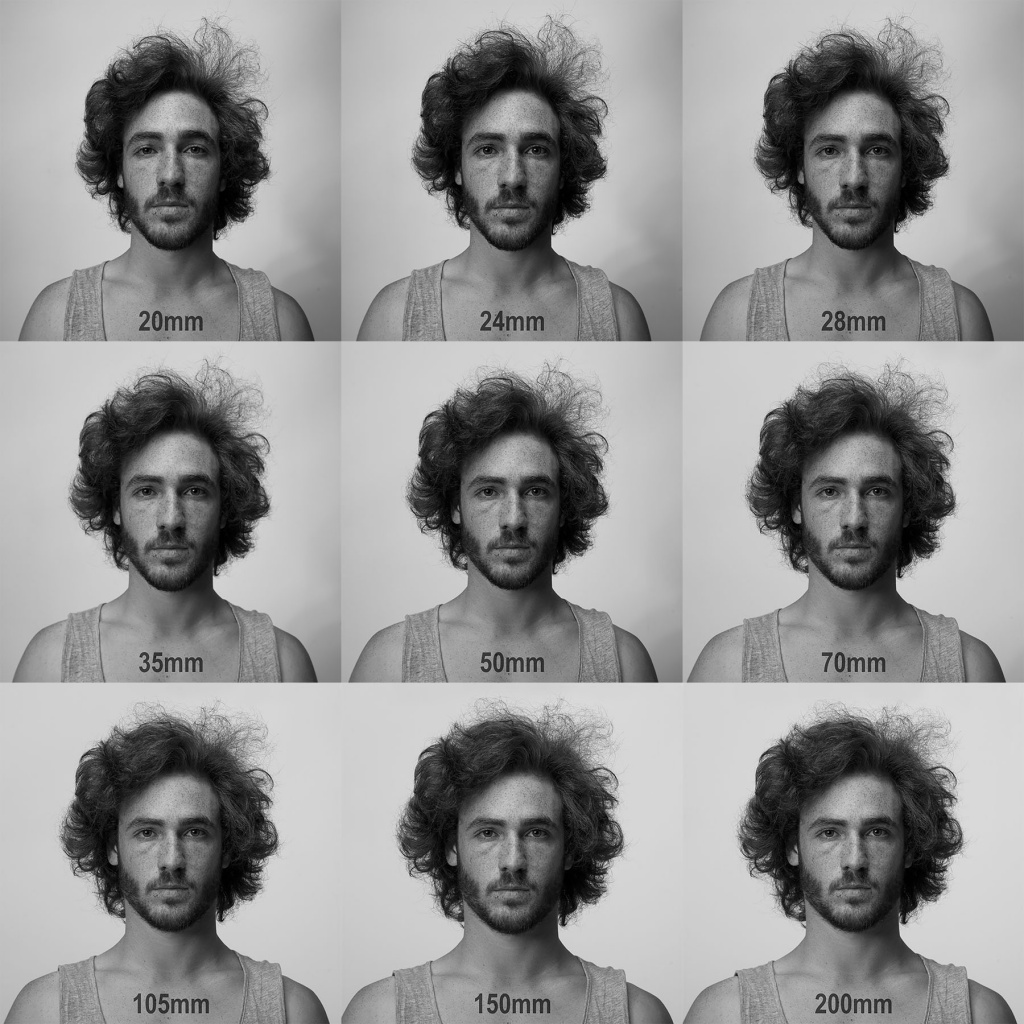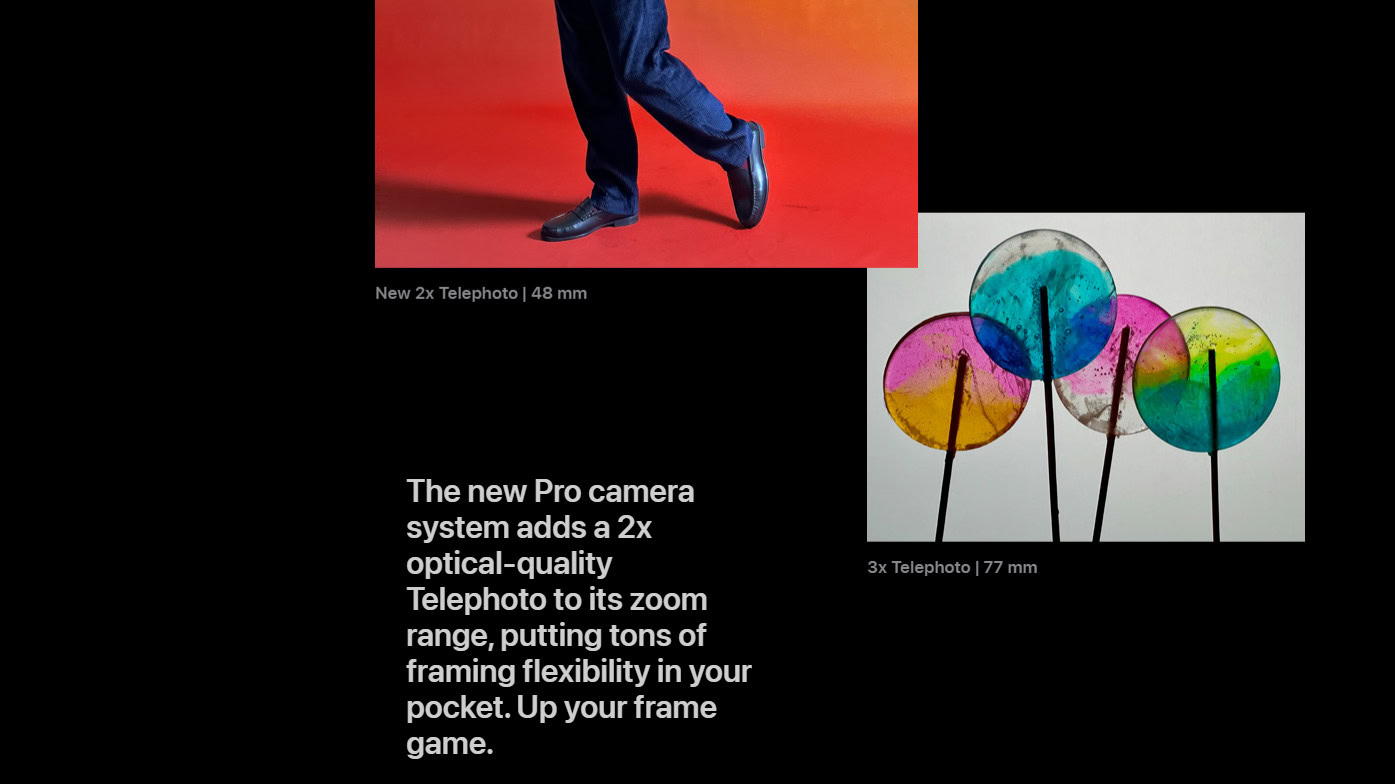Affiliate links on Android Authority may earn us a commission. Learn more.
Don't believe Samsung when it says the S24 Ultra has a 'quad tele' camera
Published onJanuary 18, 2024
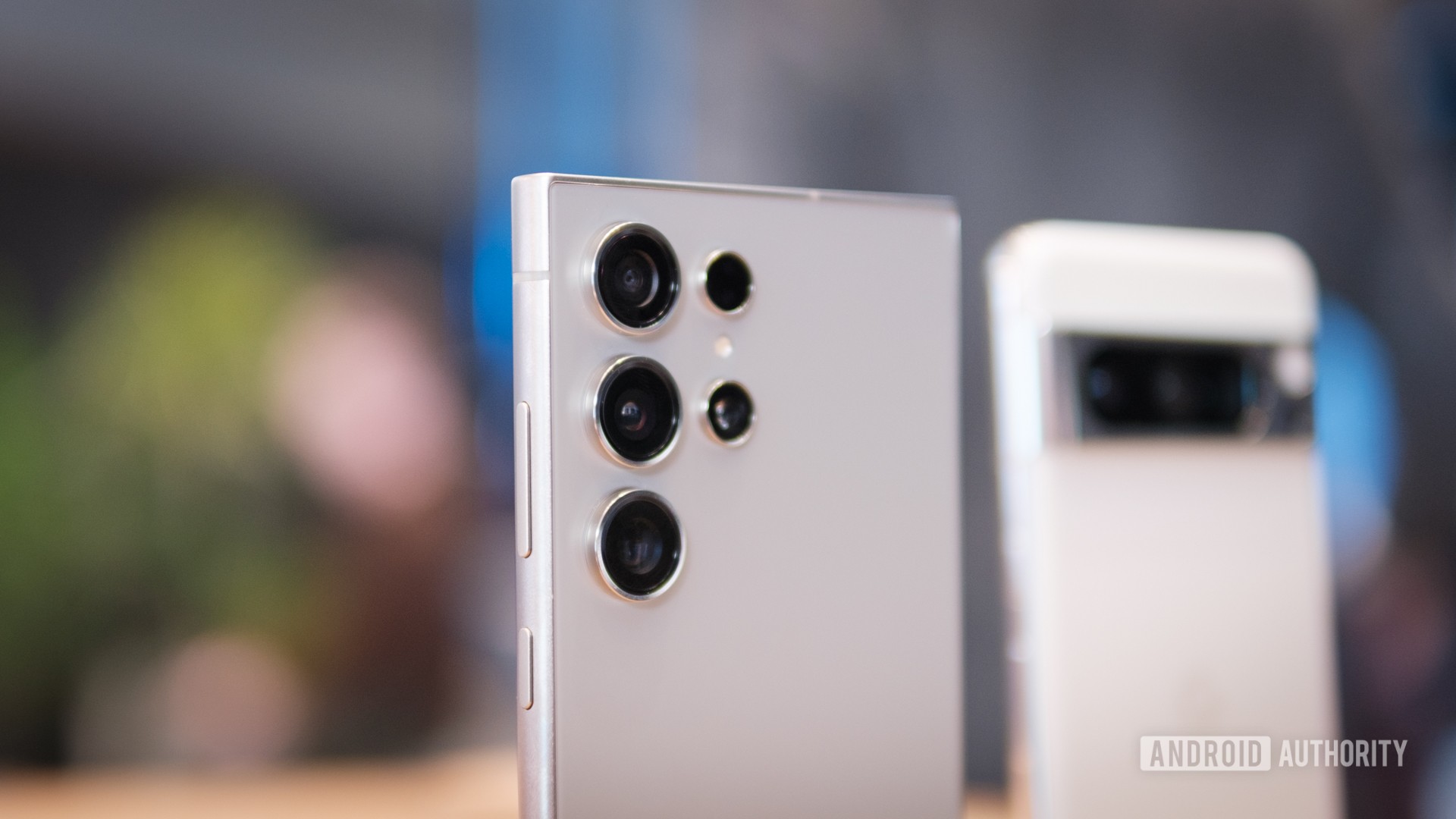
Smartphone manufacturers have a historical affinity for bending the truth regarding camera zoom. From Apple to Google and more, we’ve even seen companies inventing new terms altogether in a bid to avoid saying “digital zoom” or “hybrid zoom.”
It looks like that hasn’t changed with Samsung and the Galaxy S24 series, either. Samsung claimed during its Unpacked event that the new Galaxy S24 Ultra has a “quad tele” camera system. What?! Four zoom lenses! That’s unprecedented! The same marketing term can be found on the official Galaxy S24 Ultra page on Samsung.com. You shouldn’t believe the company’s claim, however, even if the Ultra is poised to be one of the best camera phones of 2024.
What do you think of the S24 Ultra's 'quad tele' claim?
Quad tele: But the S24 Ultra only has two zoom cameras?
Samsung asserts that its latest high-end phone offers a “quad tele” setup, implying that we’ve got four tele cameras on offer. But you only need to look at the S24 Ultra spec sheet to see that this simply isn’t true.
Instead, the new phone has two zoom cameras. There’s a 10MP 3x telephoto camera and a 50MP 5x periscope camera. So why call it a “quad tele” system, then?
Like Apple and Google, Samsung is using digital cropping to extrapolate the S24 Ultra's zoom performance.
The Korean manufacturer insists on this term because it reckons that the S24 Ultra offers “optical-quality” performance at 2x, 3x, 5x, and 10x, even though there aren’t any proper 2x or 10x telephoto cameras. The phone is using software-based techniques and/or machine learning to offer better 2x and 10x images from the existing 1x and 5x lenses, respectively.
“Optical-quality” does not equal telephoto
Doesn’t Samsung think the “quad tele” moniker could fool people into thinking there are four physical tele cameras here? Android Authority asked that very question, but the company side-stepped it in its response to us:
With our high-res lenses, we’re able to offer optical-quality 2x and 10x zoom. We also make it easy to access those zoom ranges within the camera.
“But Hadlee, you pedantic idiot, who cares when the 2x and 10x images offer the same level of detail as a telephoto or periscope camera?” You might ask. And yes, in a way, you’re right. 2x and 10x pictures with detail comparable to telephoto cameras are a nice alternative to building a phone with 10 different camera bumps on the back, but there’s more to a telephoto camera than just detail.
Different zoom cameras have different levels of distortion, affecting both the subject and the background. A shorter focal length (e.g. 20mm to 30mm) from a short distance results in a narrow face when taking portrait shots, while a much longer focal length (e.g. 100mm and higher) from a further distance results in a wider face. Check out the examples below.
You can therefore crop to a given zoom level, such as 2x, for example, but you won’t have the same distortion as a physical 2x telephoto camera.
Even if the S24 Ultra offers great 2x and 10x snaps, they're still not coming from 2x and 10x cameras.
Samsung’s “quad tele” term also sets a problematic precedent for smartphone camera zoom. What’s to stop another brand from claiming it has an “octa tele” or “octa telephoto” camera setup with a future flagship phone because it offers high-quality cropping at 1.5, 2x, 2.5x, 3x, 4x, 8x, 10x, and 20x?
Misleading terms like these could also embolden other companies to come up with their own confusing camera marketing terms. A brand might claim that it has “dual selfie” cameras because it offers a normal and ultrawide selfie mode via one front-facing camera. Another might claim to do an “8K photography” when it’s only referring to the photo resolution rather than the video resolution.
Murky waters lie ahead and, between 200W charging speeds that only last a few minutes then fall down to ~40W and 3,000 nits of display brightness that are only achieved in a high-intensity setting but never in real use, we’re already deciphering a lot of bold marketing claims and buzzwords. We really don’t need more half-truths to explain, Samsung.
Don’t believe what any brand tells you about zoom
Samsung seems to be following in Apple’s footsteps by erroneously claiming to offer telephoto cameras. Apple did this with the iPhone 14 series launch, explicitly stating in its marketing materials that these phones have “2x telephoto” capabilities when it was merely cropping from the main camera. Google has been a bit less brazen with its claims, using terms like “optical quality similar to a 2x telephoto.”
Then again, this isn’t the first time Samsung has tried muddying camera zoom terms to suit its marketing goals, either. Back in 2020 and 2021, Samsung claimed that the Galaxy S20, S20 Plus, S21, and S21 Plus all offered “hybrid-optic” zoom cameras. It turned out that these cameras were 64MP ~1x fixed cameras that used software techniques for 3x hybrid zoom.
Either way, the Galaxy S24 Ultra doesn’t really have four telephoto cameras, contrary to Samsung’s newly created “quad tele” term. That doesn’t mean it won’t offer great image quality at 2x, 3x, 5x, and 10x, but it’s still an important distinction so consumers know what they’re really getting.
